As the Bakarwal and Gujjar tribes make their way from Jammu into Kashmir on foot, to look for greener pastures for their cattle, Anju Maskeri speaks to photographer Imran Shah who has documented their journey and finds out more about the intrepid nomads
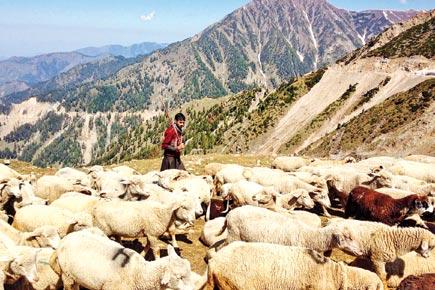
April-May is springtime in Kashmir and also a period that witnesses more than two lakh Gujjars and Bakarwals — tribes based in the Himalayan region — making inroads into its lush meadows from Rajouri and Poonch districts of Jammu, looking for pastures for their cattle.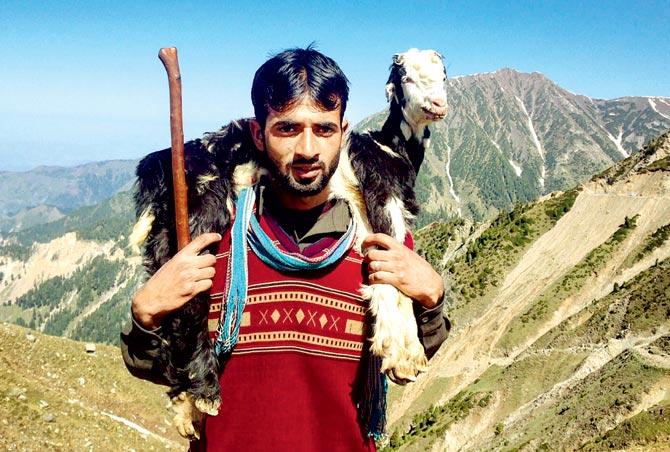
Zahoor Ahmad carries a goat as he leads his cattle near Peer Ki Gali, 80 kilometres south of Srinagar
ADVERTISEMENT
Travelling by foot, with their flock of cattle and belongings in tow, these tribes camp overnight at several habitable spots before resuming their journey to greener pastures.
They are even accompanied by the bakarwal dogs or what they call bhotia to protect their herd. Srinagar based photographer Imran Shah who accompanied the tribes this year on their trail within the Valley, reveals that the moment the tribe makes a successful journey into Kashmir, they visit a shrine located at the Peer Ki Galli, near Mughal road to offer namaz (prayer).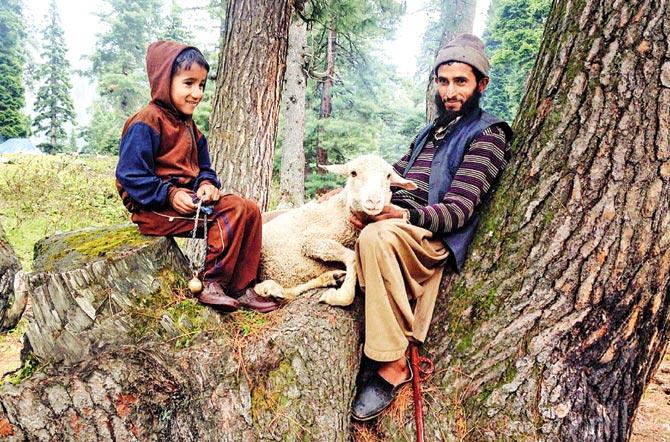
Rashid Khan rests on the bark of a tree with his son and a pet sheep at Hirpora, 65 kilometres south of Srinagar
"Since they have no money, they offer goat's milk at the shrine. This is their way of expressing gratitude for having made it to their destination safely," he says.
Bakarwal migration reaches its peak around this time. The tribes reside in lush, verdant areas of the Valley for about five months to escape the heat of Jammu.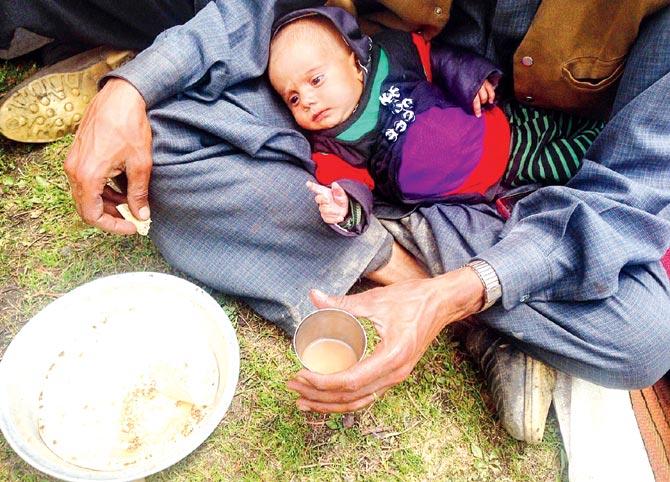
Altaf Ahmad holds his one-year-old son Mushtaq
Around October-November, which marks the onset of winter in Kashmir, the tribes slowly make their way to warmer regions in Jammu. Their journey is often long and arduous, wherein they have to brave rough and uncompromising weather.
Ajaz Ahmed, a Gujjar says, "It takes us 10-15 days from Rajouri to Kashmir. We have to walk as long as the cattle and sheep. We stop at dusk."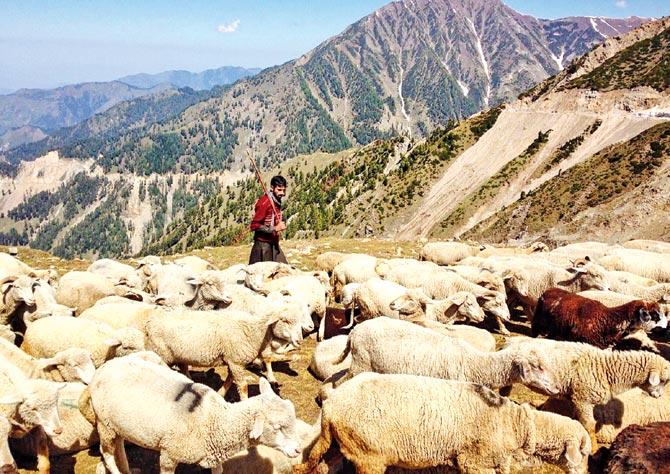
A Bakarwal shepherd walks along with his cattle near Peer Ki Gali
While most take their family along, some leave their wives and children behind. "They do have cellphones and carry portable solar chargers," reveals Shah.
The nomads, who cook in the open, find it difficult to do so due to the harsh climate. They normally survive on rice, maize bread, salted tea and fruits. Their clothes are colourful and vibrant.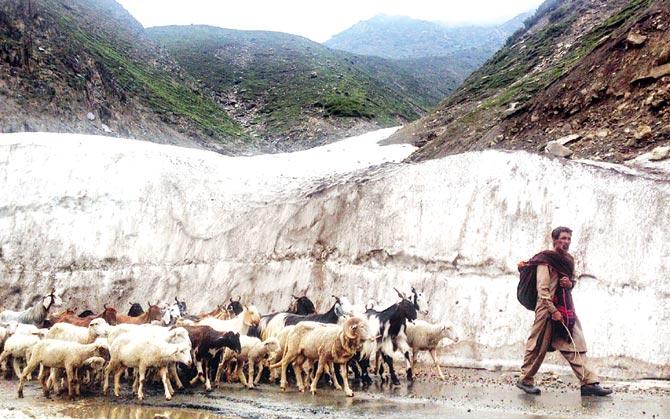
A Bakarwal nomad leads his cattle near Dubgan, 70 kilometres south of Srinagar
While the men are usually seen in loose kurtas and pyjamas and sweaters, women are seen in salwar kameez of dark hues such as maroon, dark blue and black with a dupatta covering their head.
Their hair is normally braided. That the women take keen interest in the jewellery, is reflected in their chunky metal jewellery.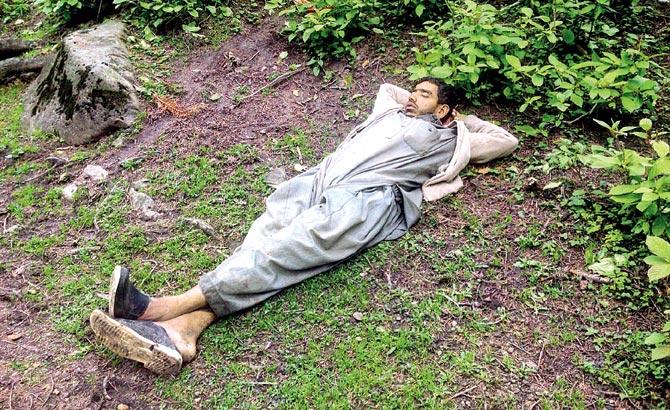
A Bakarwal nomad takes a nap
"Having lived in isolation, the tribes have developed their own culture. The tribes even have their Gojari language, which is distinct from the languages spoken in the Himalayan region," reveals Shah.
The road ahead
While their primary objective behind the migration is to help their cattle find lush pastures, they also try to eke out a living by selling wares like handmade embroidered items.
A cellphone has been put on charge on a solar charging device
If harsh weather wasn't enough of an impediment, some even claim to face harassment from cops. "Cops try to extort money out of us," says Mohammed Riyaz, a Bakarwal nomad.
Due to the bi-annual migration and nomadic lifestyle, about two lakh nomadic Gujjars and Bakerwals mostly remain illiterate due to lack of education facilities in the higher reaches of the state.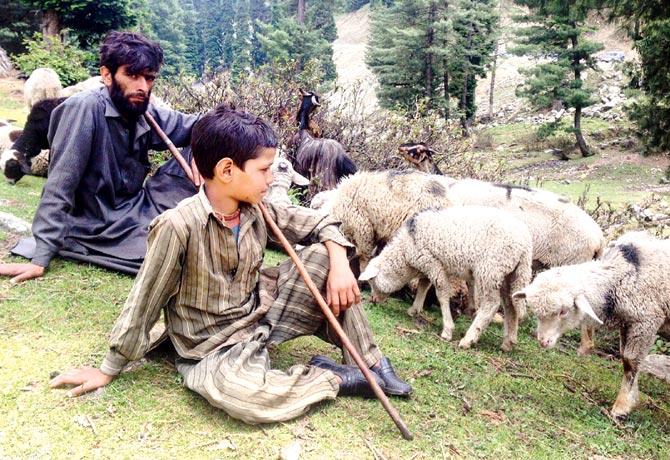
Bashir Khan and his son watch over a flock outside their tent at a temporary camp in Hirpora
However, the state has made facilities for seasonal schools where a teacher is employed at several pockets of Gujjar dwellings to impart basic education.
"Although most are illiterate, the younger generation is receiving education," says Shah. He gives us the example of Bashir Ahmed, a nomad from the tribe.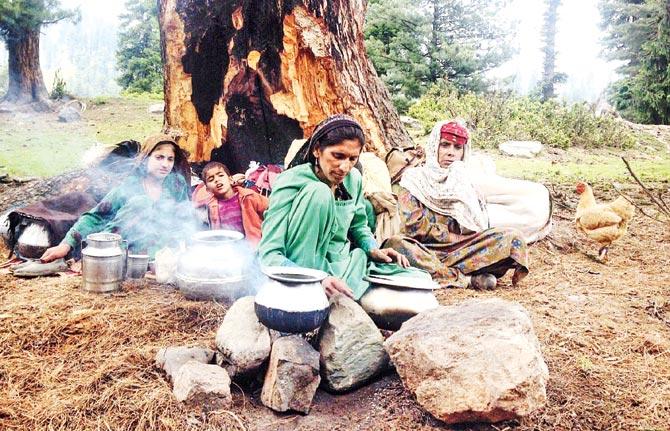
A Bakarwal family prepares food as they stop for a short break in Hirpora
"Although he is illiterate, he is making sure that his children attend school, so that they live a better life than him," he says.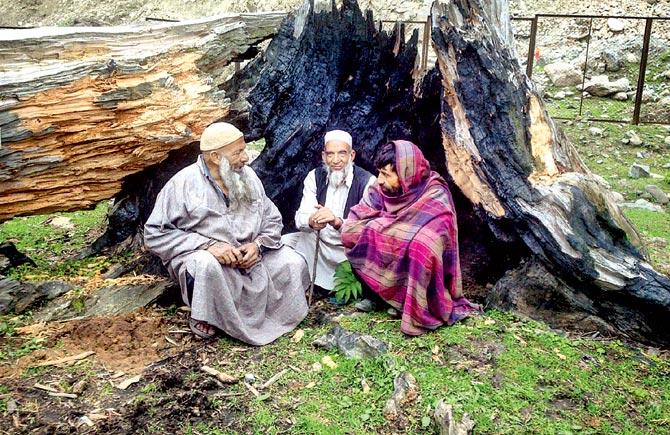
The seniors of the Bakarwal clan huddle near the bark in Hirpora
 Subscribe today by clicking the link and stay updated with the latest news!" Click here!
Subscribe today by clicking the link and stay updated with the latest news!" Click here!






